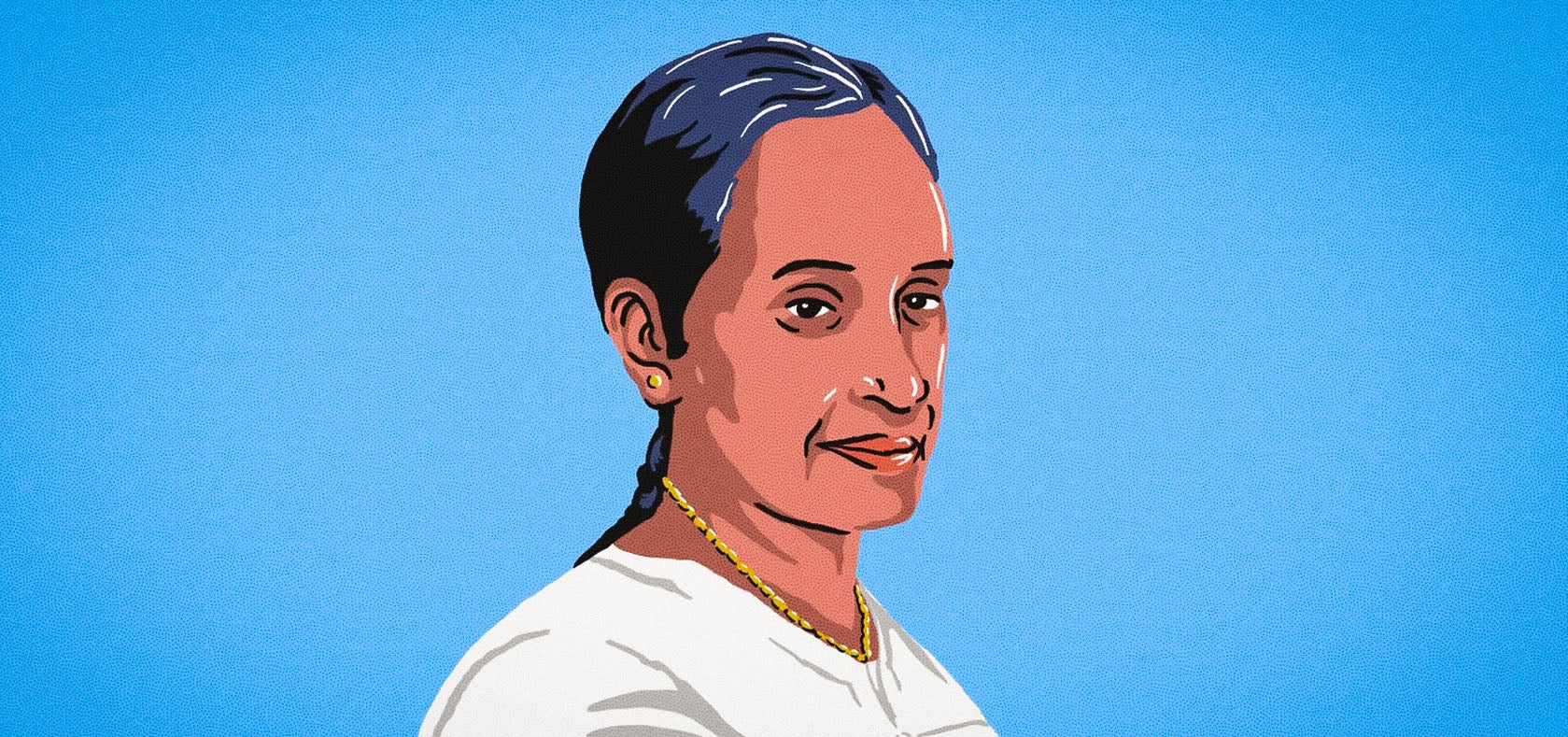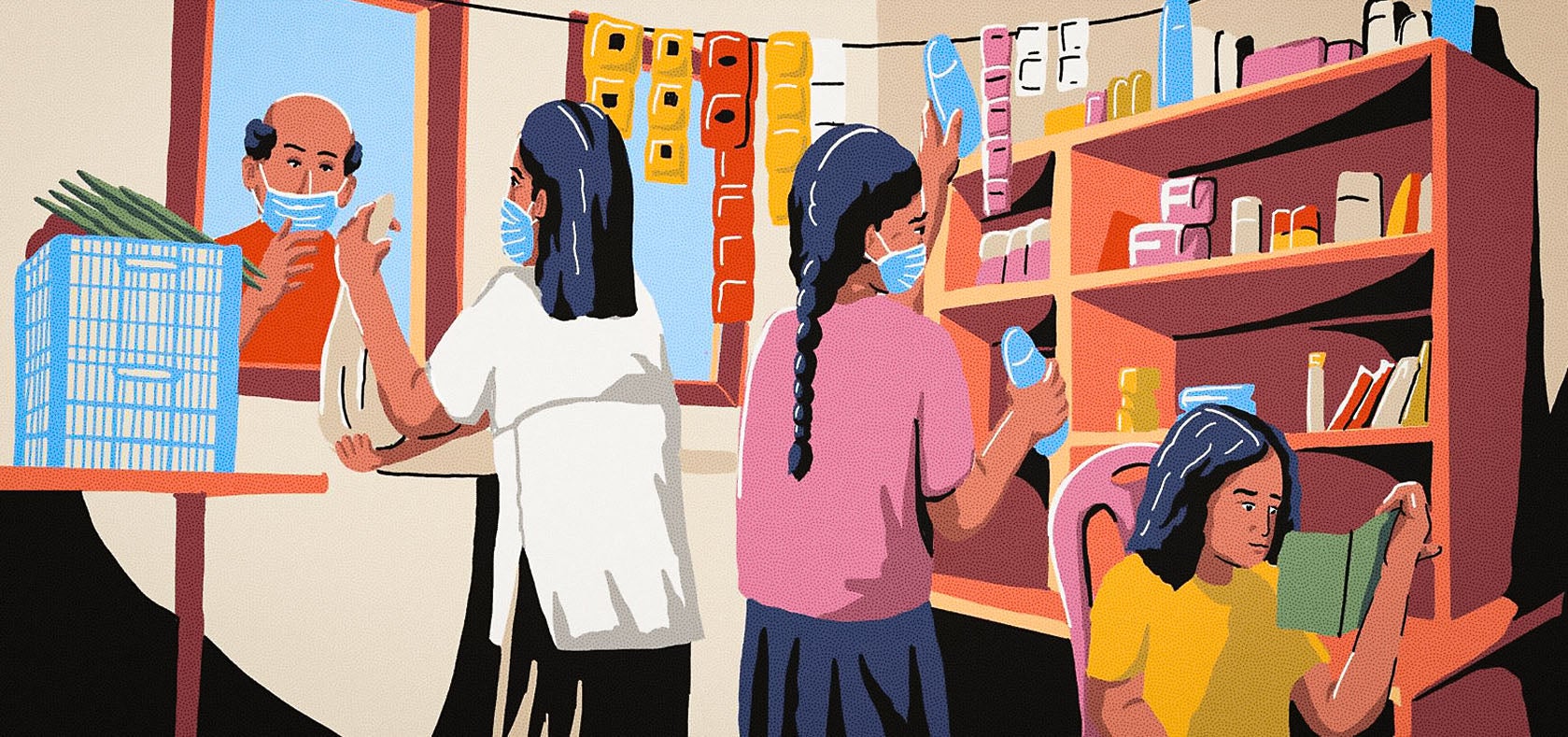A woman grocery store owner forges ahead amid the COVID-19 pandemic in Sri Lanka
Date:
Author: Sakina Aliakbar

Colombo, Sri Lanka — Bhagya Krishanthi, 43, is the owner and manager of a boarding house and a small corner grocery store in Malabe, a suburb a few kilometres outside of the commercial capital of Colombo. She built up her store from humble beginnings, first selling simple items such as coconuts, oil and eggs, then expanding into a larger variety of goods when more capital and profits trickled in.
But the COVID-19 pandemic has severely hit both of Krishanthi’s businesses over the past two years. For the safety of the community, she had no choice but to indefinitely shut the boarding house after seven years in operation. She also had to temporarily shut the grocery store, first during the initial nationwide curfew in March 2020, then during multiple lockdowns until September 2021.
That made life difficult for Krishanthi, who lives with her two daughters and her mother.
It wasn’t easy for her to start the business to begin with. “It was very hard to convince others to give me loans because they were uncertain of my capabilities and skills as a lone woman, who did not have a man to back me in my ventures,” she recalled.
Krishanthi’s biggest business supporter has been her 21-year-old daughter, who provided her with seed money from her salary, so she could expand the store.
Krishanthi remained committed to achieving a self-sustaining lifestyle, and in this she found another supporter: UN Women.
In August, she took a two-day UN Women’s training on business planning that was specifically designed to help women keep their business ventures going during the pandemic or whenever those ventures were struggling the most.
“In Sri Lanka, more women require and want such economic support and training,” Krishanthi said. “It is important to ask questions and to provide resources where we educate and teach women how to plan for their future and become independent.
“UN Women offers genuine support to women, where they are not only encouraged and motivated, but also trusted to have the know-how to be able to handle these prospects.”
Most often, women in Sri Lanka are expected to follow conventions. Krishanthi said she believes that challenging the norm has been highly rewarding for her as she was able to expand and diversify her business. She is now able to better manage her income and expenses and convert these into profit and revenue.
Today, Krishanthi finally sees her corner store business picking up despite the obstacles thrown up by COVID-19 in the last two years. And she foresees exciting opportunities ahead.

The training Krishanthi took is part of a collaboration between UN Women and the Government of Sri Lanka to give women financial literacy, business planning and other training so they can start and build up their own businesses. A local civil society organization, Chrysalis, conducts the trainings and provides in-kind support to the women.
The trainings are targeted at women from vulnerable groups including women heads of households and entrepreneurs affected by the pandemic. A total of more than 700 women are expected to receive the trainings.
The trainings are part of a project called Implementation of the Women, Peace and Security Agenda in Sri Lanka, which UN Women runs with the State Ministry of Women and Child Development, Pre-Schools & Primary Education, School Infrastructure & Education Services.
The project runs from 2020-2022 and is funded by the Government of Japan. It also provides trainings to government officials tasked with implementing policies related to women, peace and security.